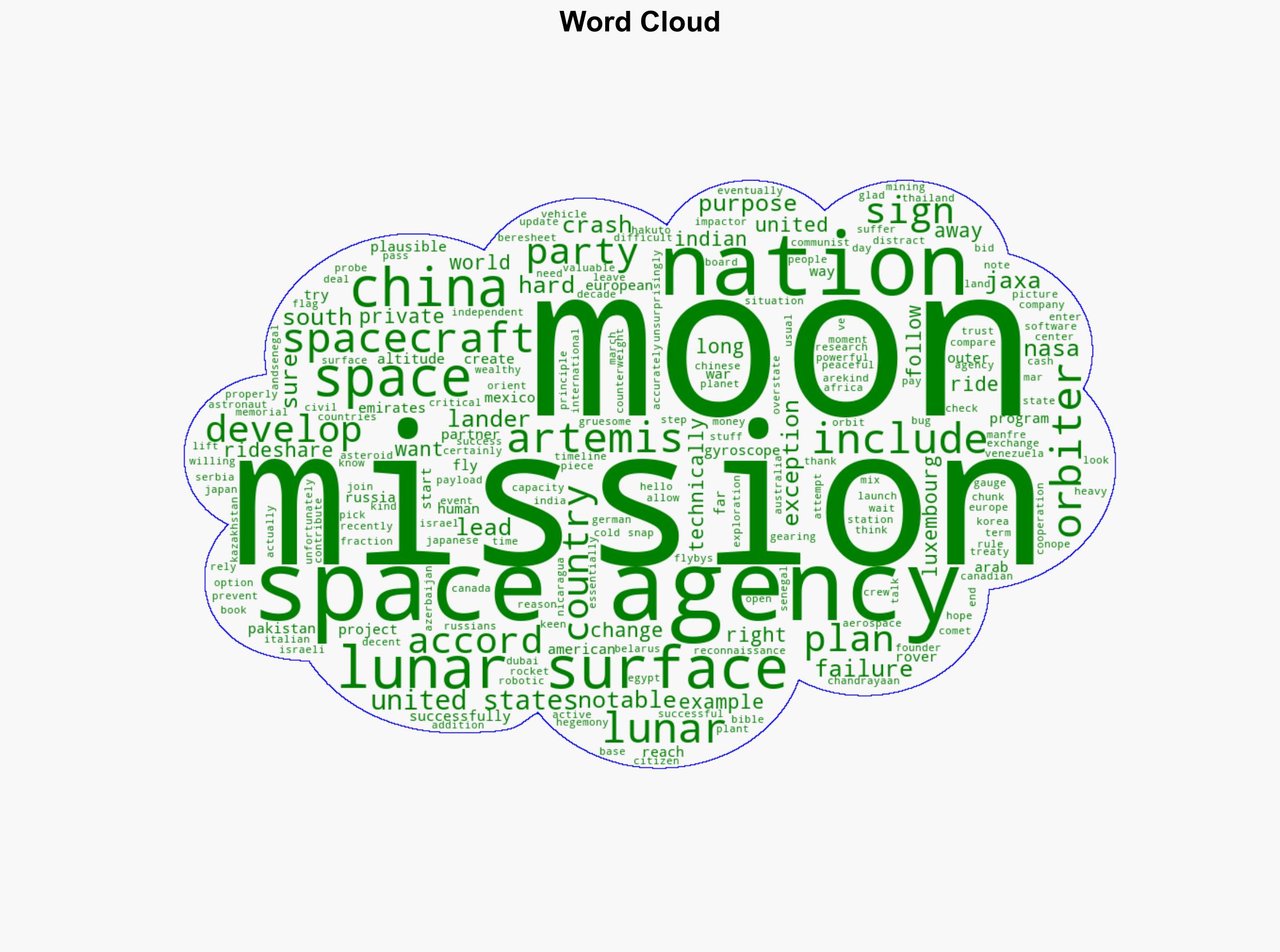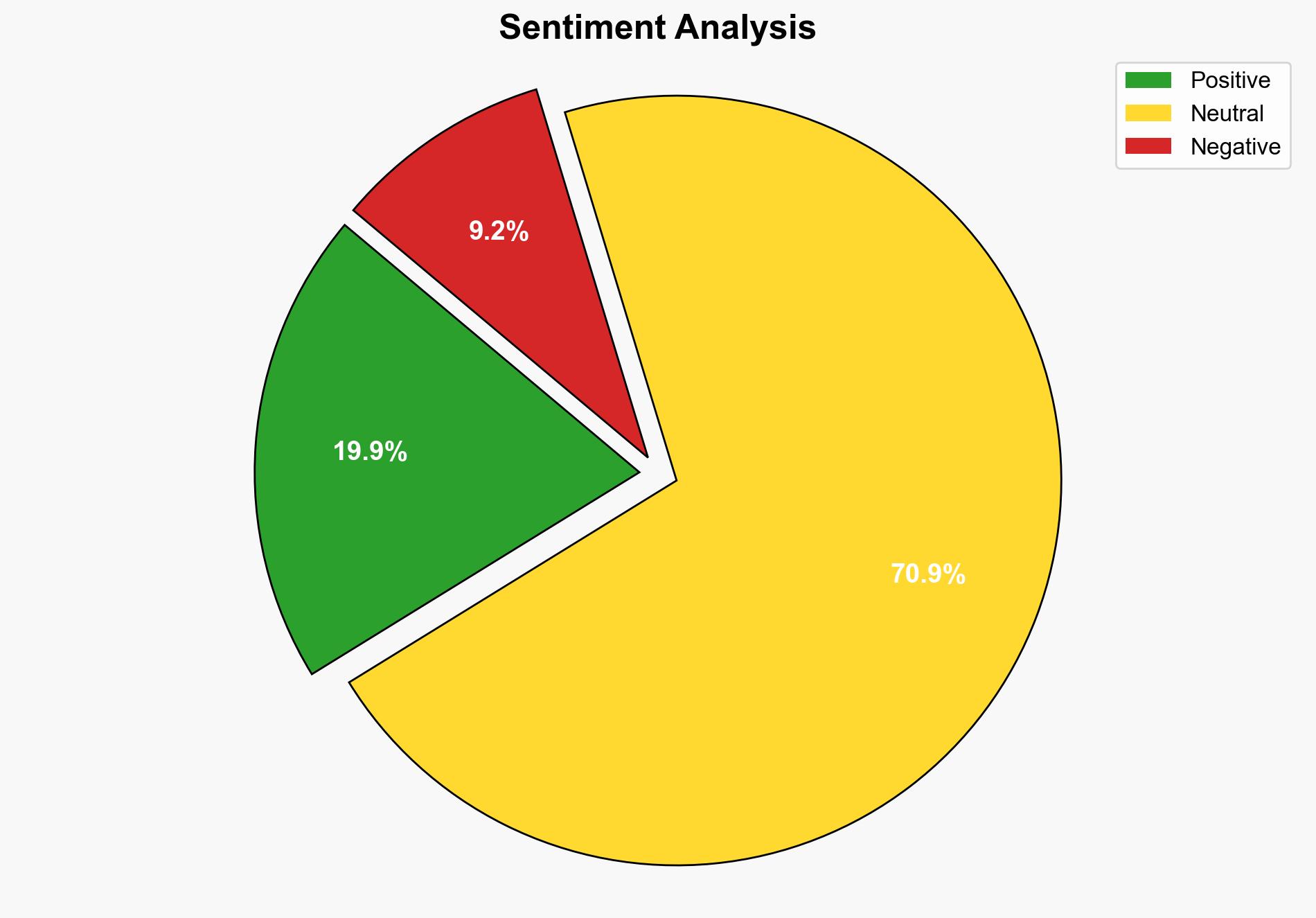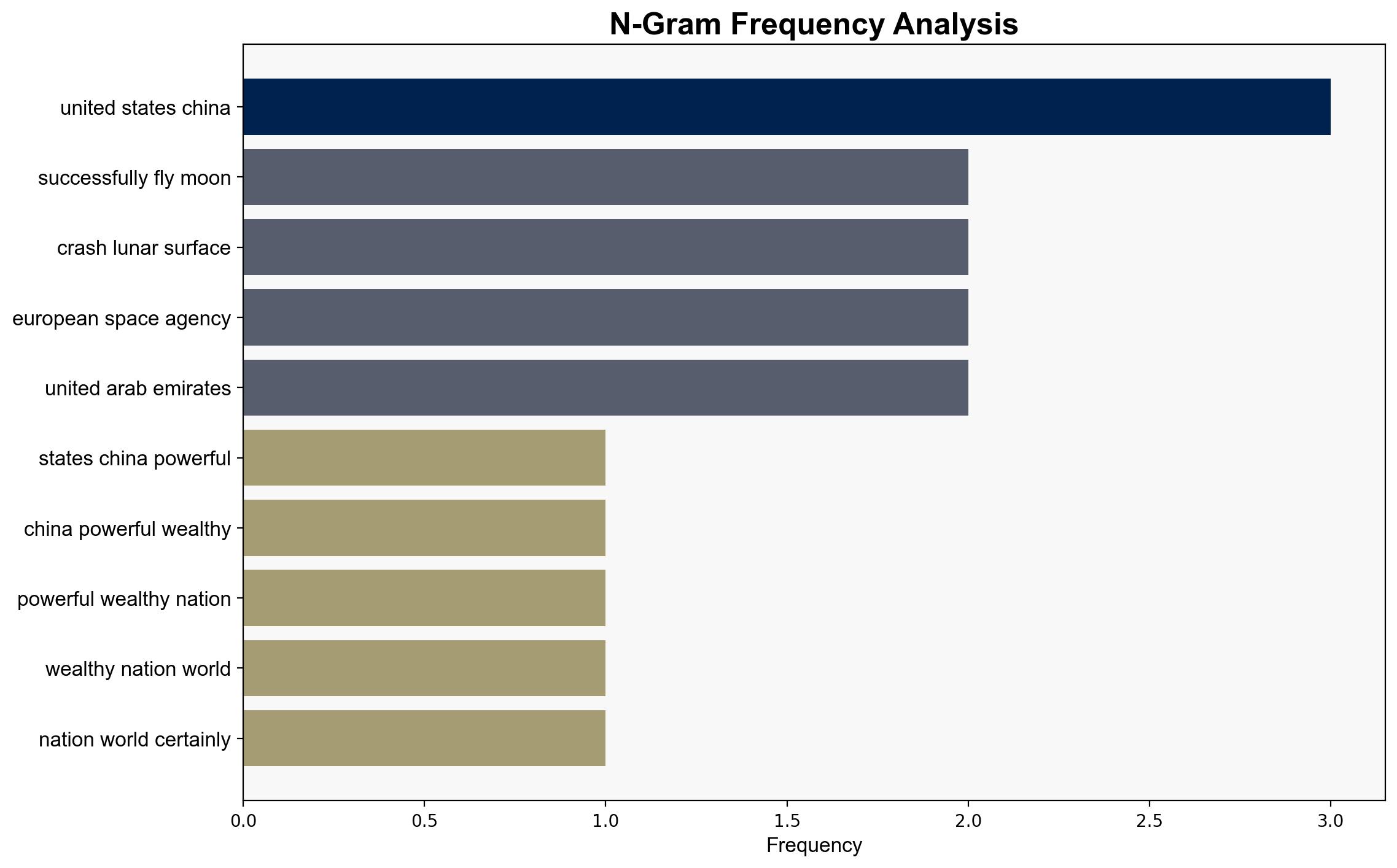The Global Race to Space Isn’t Just About Big Countries – Universe Today
Published on: 2025-07-24
Intelligence Report: The Global Race to Space Isn’t Just About Big Countries – Universe Today
1. BLUF (Bottom Line Up Front)
The global space race is increasingly characterized by the participation of smaller nations and private entities, challenging the dominance of traditional space powers like the United States and China. The most supported hypothesis suggests that this diversification will lead to increased collaboration and competition, potentially reshaping geopolitical alliances. Confidence Level: Moderate. Recommended action: Encourage international cooperation frameworks to manage emerging space activities and prevent conflicts.
2. Competing Hypotheses
Hypothesis 1: The involvement of smaller nations and private entities in space exploration will foster international collaboration, leading to a more cooperative global space environment.
Hypothesis 2: The increased participation of diverse actors in space will heighten competition and geopolitical tensions, potentially leading to conflicts over space resources and strategic dominance.
Applying ACH 2.0, Hypothesis 1 is better supported by the current trend of international agreements like the Artemis Accords, which aim to establish norms for peaceful space exploration. However, the exclusion of major powers like China and Russia from these accords supports Hypothesis 2, indicating potential for rivalry.
3. Key Assumptions and Red Flags
Assumptions:
– Smaller nations and private entities have the capability and resources to sustain long-term space missions.
– International agreements will effectively manage the interests of all participating countries.
Red Flags:
– The exclusion of China and Russia from major international space agreements could lead to the formation of rival blocs.
– The potential for technological espionage and cyber threats as more actors enter the space domain.
4. Implications and Strategic Risks
The diversification of space actors could lead to a more dynamic and innovative space industry, but also increases the risk of fragmented regulatory environments. Geopolitical tensions may rise if countries perceive space as a zero-sum game, leading to an arms race in space technologies. Economic implications include the potential for new markets and industries, but also the risk of resource conflicts.
5. Recommendations and Outlook
- Promote inclusive international frameworks that involve all major space-faring nations to prevent the formation of rival blocs.
- Enhance cybersecurity measures to protect space assets from espionage and sabotage.
- Scenario Projections:
- Best Case: Enhanced global cooperation leads to significant advancements in space exploration and technology.
- Worst Case: Geopolitical tensions escalate into conflicts over space resources, leading to militarization of space.
- Most Likely: A mixed environment of collaboration and competition, with periodic tensions over strategic interests.
6. Key Individuals and Entities
– Luxembourg’s private lunar probe initiative.
– The Israeli Space Agency’s Beresheet mission.
– NASA’s Artemis project and its international partners.
7. Thematic Tags
national security threats, cybersecurity, space exploration, geopolitical competition, international cooperation




